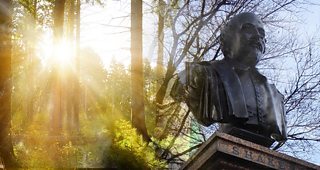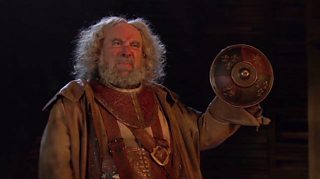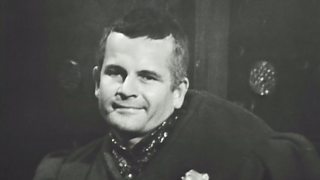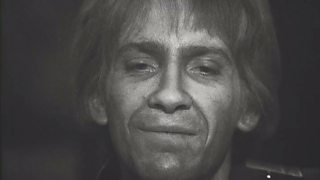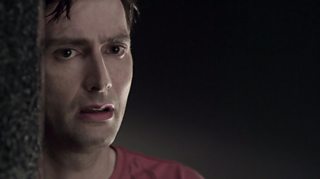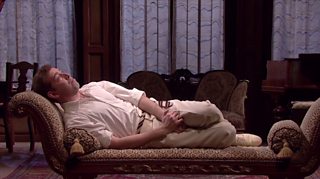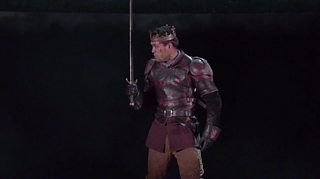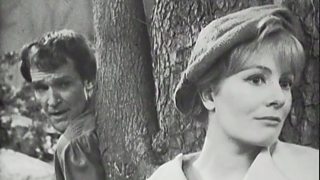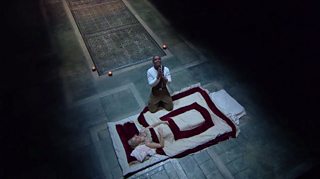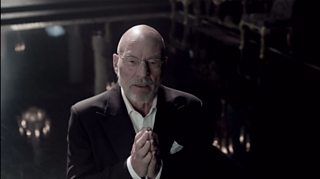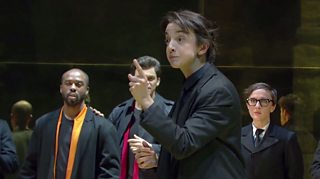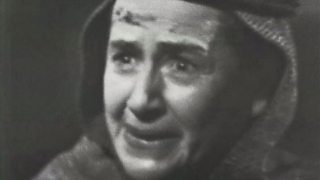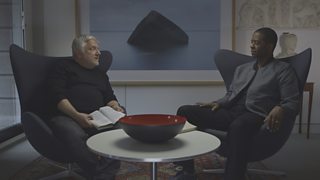Great Shakespeare Speeches
From Julius Caesar’s "Friends, Romans, Countrymen…" to Richard III’s "Now is the winter of our discontent…" Shakespeare has written some of the greatest dialogues and monologues in the history of literature. The has a rich heritage of working with TV channels in Britain to transform these texts in to captivating performances.
The RSC’s John Wyver takes a further look at some of the most memorable, classic and timeless Shakespeare speeches.
Watch now...
-
![]()
"Honour pricks me on..." - Act 5, Scene 1
-
![]()
"Now is the winter of our discontent..." - Act 1, Scene 1
-
![]()
"Friends, Romans, Countrymen..." - Act 3, Scene 2
Broadcast on 23 April, the day on which William Shakespeare is believed to have been born and also to have died, the celebration Shakespeare Live! From the RSC is only the most recent collaboration between television in Britain and the Royal Shakespeare Company. ITV with Trevor Nunn’s Macbeth (1979) and Channel 4 with Nicholas Nickleby (1982) have both produced adaptations of RSC productions, but it has been the 大象传媒 that has most consistently recorded great stagings of Shakespeare by the company. Fortuitously, most of these have survived in the archives, and they allow us to see today definitive performances by actors including Ian Holm, Peggy Ashcroft, Vanessa Redgrave and David Tennant. More recently, the RSC itself has been screening its productions live in cinemas, and these broadcasts also feature exceptional actors like Antony Sher and Alex Hassell in some of theatre’s greatest roles.
Watch more performances...
-
![]()
"Here on this molehill will I sit me down..." - Act 2, Scene 5
-
![]()
"To be or not to be..." - Act 3, Scene 1
-
![]()
"I, that have been love's whip..." - Act 3, Scene 1
For Great Shakespeare Speeches, I have been delighted to select from these RSC riches a dozen well-known moments from the plays performed by wonderful actors, either alone or in dialogue with one or more of their peers. There is Vanessa Redgrave as a youthful, flighty, sexy Rosalind in As You Like It from 1963; this was the performance of which the critic Michael Billington wrote recently, “I have never seen a more exciting demonstration of the ecstasy of love.” From Henry VI Part III, captured as part of the History plays cycle The Wars of the Roses in 1965, Peggy Ashcroft as a vengeful Queen Margaret tears up the screen as she humiliates the Duke of York, played by Donald Sinden, and smears across his face the blood of his dead son Rutland. And more recently, from the 2015 production of Othello, Hugh Quarshie, perhaps best known as Ric Griffin in Holby City, is driven by his obsessive (and unfounded jealousy) to contemplate murdering his beloved Desdemona.
Watch here...
-
![]()
"Once more unto the breach..." - Act 3, Scene 1
-
![]()
"How to know a man in love..." - Act 3, Scene 2
-
![]()
"Put out the light..." - Act 5, Scene 2
In snipping from the panorama of the RSC on screen I wanted to feature fragments from a range of the plays, bringing together iconic moments like Portia’s speech that begins “The quality of mercy is not strain’d” from The Merchant of Venice, beautifully performed by Patsy Ferran in 2015, with equally exquisite but perhaps lesser known words like the discourse on love by Berowne, here Edward Bennett in 2014, in Love’s Labour’s Lost. And then there were certain speeches that no selection can pass over, including “Friends, Romans, Countrymen” from Julius Caesar, spoken in the Forum by Mark Antony, incarnated in the series by Ray Fearon in a television film version made in 2012. Equally essential is “Now is the winter of our discontent” from the opening of Richard III, especially when it is given such a glitteringly evil and yet winning performance as that by Ian Holm in 1965.
Watch more great speeches...
-
![]()
"My offence is rank..." - Act 3, Scene 3
-
![]()
"The quality of mercy is not strain'd..." - Act 4, Scene 1
-
![]()
"A crown for York..." - Act 1, Scene 4
As well as offering us precious access to defining performances like these, and also David Warner’s astonishingly vulnerable King Henry VI from 1965 and David Tennant’s 2009 Hamlet, these extracts also demonstrate a fascinating variety of the ways in which over the past five decades Shakespeare on stage has been interpreted for television and for live cinema. In late 1962 the production of As You Like It transported Vanessa Redgrave and the rest of the RSC cast, as well as its huge oak tree of a set, from the stage at Stratford-upon-Avon into a television studio in west London to make a recording with electronic cameras. Two years later, the 大象传媒 travelled in the opposite direction, taking two outside broadcast units to Stratford to capture the trilogy of The Wars of the Roses on its vast and effectively immovable steel set designed by John Bury. As You Like It has an appropriately light and airy quality, even if you can occasionally see the joins in the scenery, whereas The Wars of the Roses is located in a dark and desolate screen world of betrayals and blood.
Fifty years on from the taping of The Wars of the Roses, the cameras were back in the Royal Shakespeare Theatre, albeit now in colour and with more sophisticated sound, to broadcast Henry V live to cinemas. Hamlet, however, was shot using a single camera over three weeks at a location for which the original stage design had been entirely re-thought. This meant that every shot could be composed and lit with a focus and concentration impossible to achieve on a single night in a theatre.
As Great Shakespeare Speeches collectively suggests, each production approach has advantages and challenges, and comparing and contrasting these excerpts with television’s new Shakespeare productions in 2016 should be both instructive and entertaining. But mostly these excerpts are offered simply to provide a moment of delight, courtesy of some of our finest actors and of words that are as fresh and meaningful today as they were four hundred years ago.

More on Shakespeare:
-
![]()
Ian McKellen鈥檚 compelling, insightful and often hilarious personal tour of Shakespeare.
-
![]()
Two of the greatest contemporary Hamlets, Simon Russell Beale and Adrian Lester, discuss the challenging role.
-
![]()
The banks of the Thames come alive with star-studded re-imaginings of the Bard's plays.

